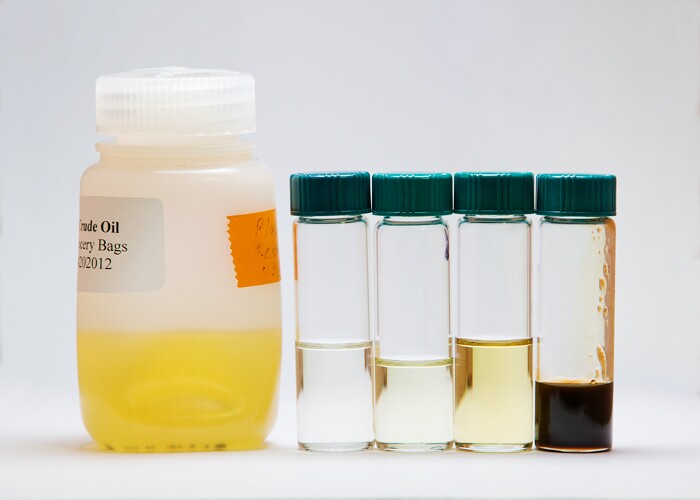Despite efforts to limit their use through implementation of charges or bans, billions of plastic bags continue to clog landfills, waterways and the world's oceans every year. Already a potential source for carbon fiber and carbon nanotubes, researchers have provided another reason not to throw the ubiquitous bags away by converting them into a range of petroleum products.
The researchers from the Illinois Sustainable Technology Center (ISTC) at the University of Illinois used a process known as pyrolysis, which involves heating the plastic bags in an oxygen-free chamber. Although this technique has been used by other research teams to convert plastic bags back into crude oil (which they are originally produced from) the U of I team went the next step and fractionated the crude oil into different petroleum products.

In this way, the researchers were able to produce natural gas, naphtha, gasoline, waxes, and lubricating oils, such as engine oil and hydraulic oil. They also produced diesel that can be blended with existing ultra-low-sulfur diesels and biodiesels, which the team tested for compliance with US standards.
"A mixture of two distillate fractions, providing an equivalent of U.S. diesel #2, met all of the specifications required of other diesel fuels in use today – after addition of an antioxidant," said Brajendra Kumar Sharma, a senior research scientist at the ISTC. "This diesel mixture had an equivalent energy content, a higher cetane number (a measure of the combustion quality of diesel requiring compression ignition) and better lubricity than ultra-low-sulfur diesel."
The team blended up to 30 percent of the plastic bag-derived diesel into regular diesel with no problems and found no compatibility issues with biodiesel.
"It’s perfect," said Sharma. "We can just use it as a drop-in fuel in the ultra-low-sulfur diesel without the need for any changes."
Sharma says the conversion process also produces significantly more energy than it uses. "You can get only 50 to 55 percent fuel from the distillation of petroleum crude oil," he said. "But since this plastic is made from petroleum in the first place, we can recover almost 80 percent fuel from it through distillation."
The team's study appears in the journal Fuel Processing Technology.
Source: University of Illinois






